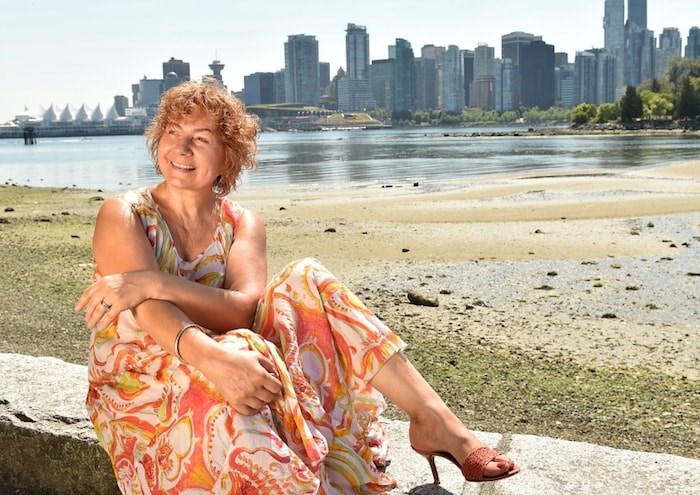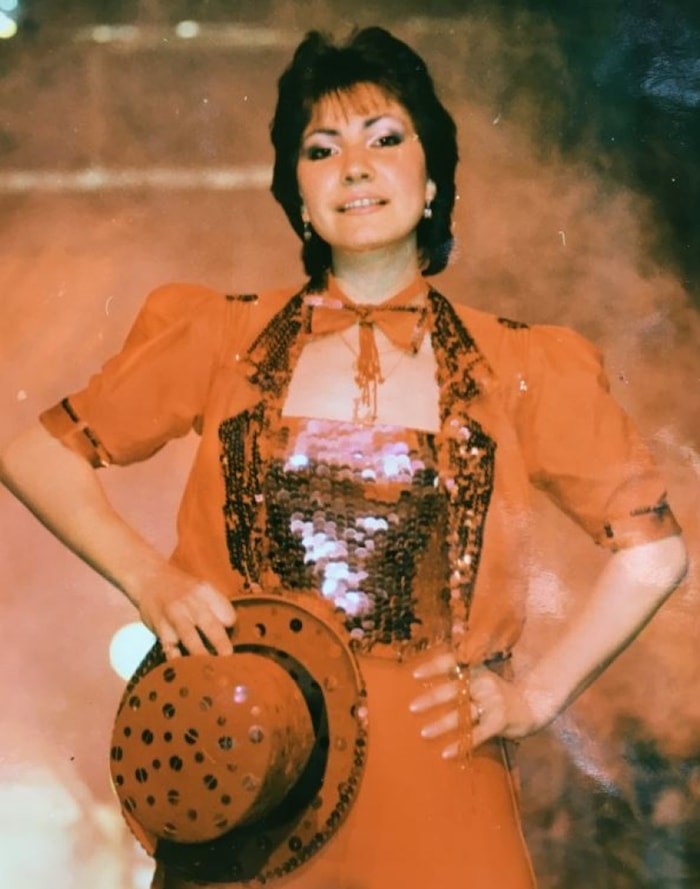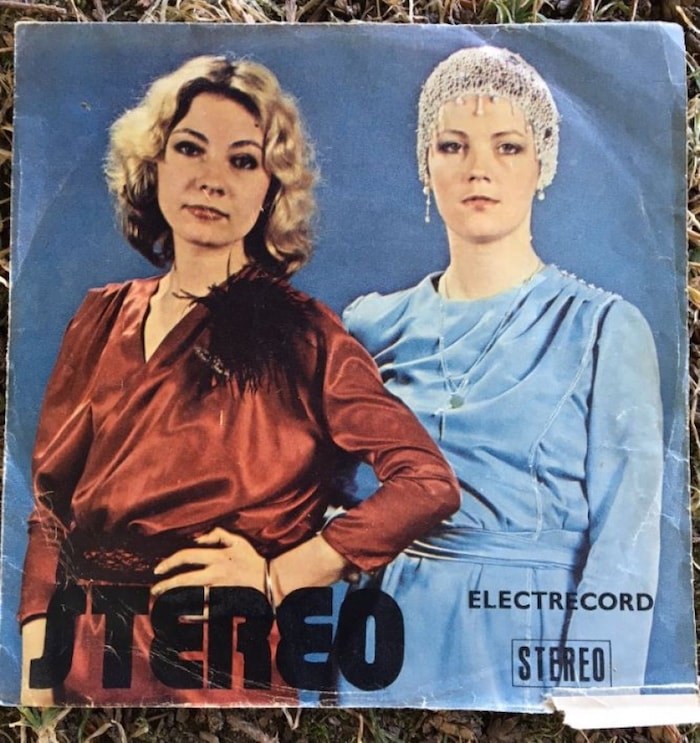Believe it or not, there was a time in recent history where В鶹ҙ«ГҪУі»ӯhome ownership was within reach and there was reason to cheer about the events playing out on the ice of Rogers Arena.
The summer skies didnвҖҷt yet resemble the end of days and Sidney Crosby was on the cusp of scoring his once-in-a-generation вҖңgolden goal.вҖқ
 Ligia Oancea in 2018, where scenes from her viral video вҖңВ鶹ҙ«ГҪУі»ӯSongвҖқ were filmed (В鶹ҙ«ГҪУі»ӯCourier)
Ligia Oancea in 2018, where scenes from her viral video вҖңВ鶹ҙ«ГҪУі»ӯSongвҖқ were filmed (В鶹ҙ«ГҪУі»ӯCourier)
Vancouverites celebrated on the streets for almost a month straight, and вҖ” gasp вҖ” were seen talking to one another and seemingly enjoying themselves.
Ah, the magic of February 2010.
One song in particular crystallized those halcyon days like few others. Few others sound like it, and likely never will.
Enter the unassuming and unexpected YouTube star Ligia Oancea вҖ” a Romanian transplant whose deliciously catchy tune вҖңВ鶹ҙ«ГҪУі»ӯSongвҖқ has been viewed roughly 500,000 times since it went online at the onset of the 2010 Winter Olympics. She performed her song on local variety show Paul AnthonyвҖҷs Talent Time and radio stations have played clips of the song.
Even Seth Rogen retweeted the video to his millions of followers on Canada Day this year.
In honour of Canada Day, please enjoy this amazing song about my hometown of Vancouver.??????
вҖ” Seth Rogen (@Sethrogen)
The low-budget video veers between decidedly amateur and a bit campy, and includes Oancea singing and dancing at Stanley Park, Science World, English Bay and at North VancouverвҖҷs Ambleside Park.
The lyrics celebrate VancouverвҖҷs natural beauty and are filled with boundless optimism for the future вҖ” вҖңThis is the place where I want to grow up and fulfill my dreamsвҖқ is the hook behind the catchy pre-chorus.
Eight years later, the Courier caught up with Oancea in Stanley Park where much of the original video was shot. Oancea reflected on how В鶹ҙ«ГҪУі»ӯhas changed since 2010, how she views her viral sensation with the benefit of hindsight and her plans for a revamped version.
Rallying cry
вҖңWith В鶹ҙ«ГҪУі»ӯSong I had lots of fans, but lots of people didnвҖҷt like the song or didnвҖҷt like the video clip,вҖқ Oancea said. вҖңItвҖҷs tricky when you expose yourself to the public. You have to expect that youвҖҷll get good and bad feedback.вҖқ
Exposing her music to the public wasnвҖҷt part of OanceaвҖҷs original game plan at all. An elementary music school teacher in West Vancouver, Oancea wrote the song for her students as a sort of rallying cry when the Olympic torch passed through town.
Close to 600 rug rats from schools across West В鶹ҙ«ГҪУі»ӯdid just that and Oancea thought that was the end of it. A Romanian friend who worked in TV suggested something more for the song.
Two hours and few rips across town later, and the video was done. Oancea thought it would be used briefly on Romanian television only.
She was mistaken.
OanceaвҖҷs producer friend uploaded it to YouTube, and it was an instant case of boom goes the dynamite: thousands of views, hundreds of comments, gig offers, radio play and media attention.
вҖңI was happy with it, but I didnвҖҷt make a big deal out of anything,вҖқ Oancea said. вҖңI made a poor choice in my clothes with the fur. I think that made it more famous. Or infamous.вҖқ
Big in Europe
 Ligia Oancea was a pretty big deal in Europe during the 1980s
Ligia Oancea was a pretty big deal in Europe during the 1980s
As it turns out, Oancea was pretty famous long before her internet debut. A musician from the word go who began playing piano at the age of four, Oancea turned pro right after graduating from a music conservatory in her late teens. She spent her 20s bouncing around a handful of bands in the 1980s, and performed all over Europe.
вҖңIt was absolutely wonderful. Romania was kind of a closed country. We missed all those years where the hippies were talking about peace and love,вҖқ Oancea said. вҖңThe only thing we had were the fashions, but we missed completely everything else. We kept an innocence. I think you can still see it in our faces.вҖқ
 Oancea has been singing professionally since age four.
Oancea has been singing professionally since age four.
It wasnвҖҷt until Oancea came to Canada in 1990 that there was a brief break from the music world. She worked in a couple East В鶹ҙ«ГҪУі»ӯrestaurants for under a year, before accepting a private music teaching gig in Chilliwack. Already armed with a MasterвҖҷs degree in music from back home, Oancea attended university in the mid вҖҷ90s so she could teach in the public school system. She lived on the North Shore for more than a decade before moving to New Westminster five years ago.
Plans for вҖҳВ鶹ҙ«ГҪУі»ӯSongвҖҷ
Outside of composing вҖңВ鶹ҙ«ГҪУі»ӯSong,вҖқ Oancea has steadily written new music every couple years. вҖңВ鶹ҙ«ГҪУі»ӯSongвҖқ has seen a few new iterations since it was first recorded and plans are afoot for yet another version that Oancea hopes will include input from local Indigenous songwriters.
While OanceaвҖҷs love for music hasnвҖҷt waned, she does see В鶹ҙ«ГҪУі»ӯthrough a slightly different lens compared to eight years ago.
The city is getting bigger and less affordable. The opioid crisis is everywhere.
вҖңI was surprised driving through town and seeing so much garbage in the street. I donвҖҷt remember the city like that,вҖқ she said. вҖңAnd itвҖҷs so expensive to live here.вҖқ
ThatвҖҷs not to suggest OanceaвҖҷs relationship with her eponymous hit has changed, nor does she have any regrets about the notoriety the video brought upon her.
вҖңIt was what it was at that time and I did my best,вҖқ she said. вҖңThe lyrics were written for people who will grow up in this city. I remember my feelings when I came here. It was wonderful. IвҖҷm lucky.вҖқ


